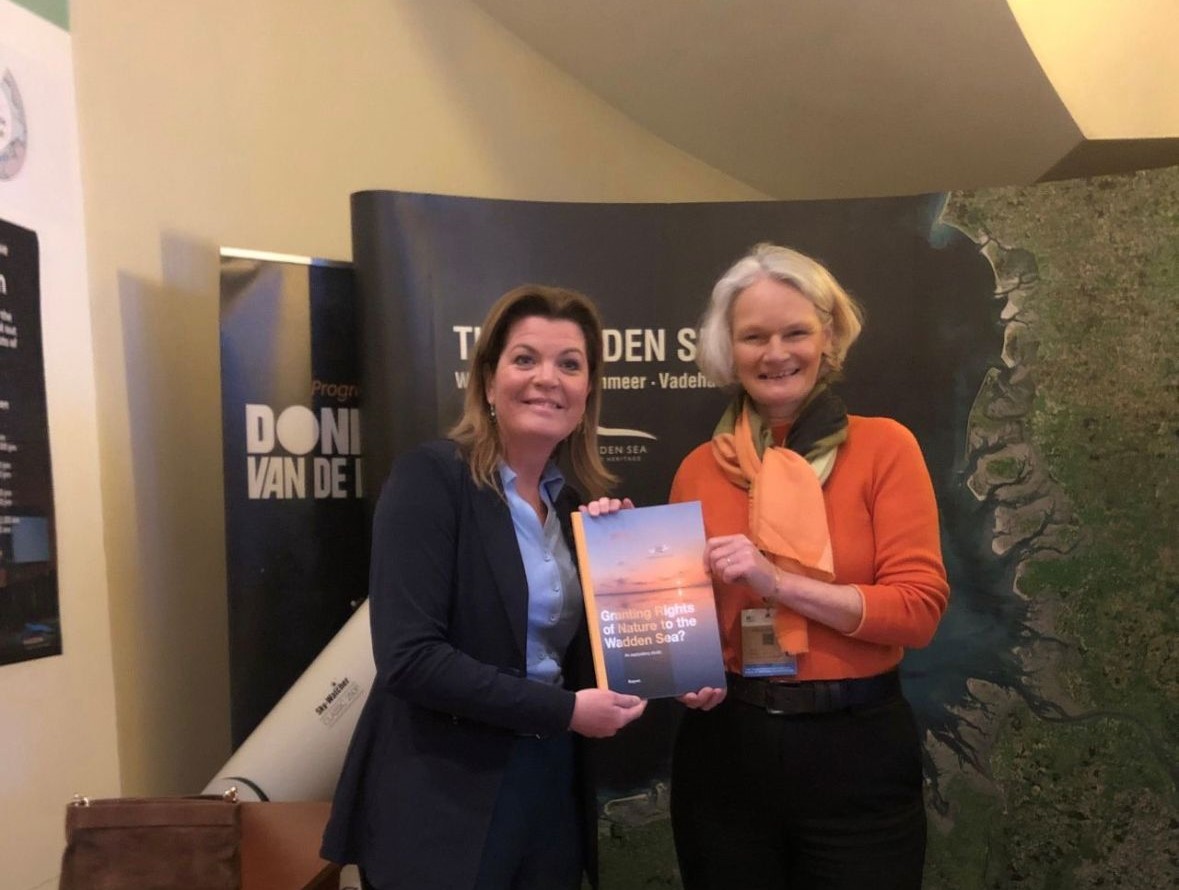For the Wadden Sea, could a Rights of Nature approach be promising for strengthening the protection of natural values in this area? Prof. Dr. Tineke Lambooy LL.M. (Professor of Business Law at Nyenrode Business University) explored this issue together with fellow researchers Tessa van Soest and Ignace Breemer.
The Wadden Sea is a unique tidal coastal area characterized by special geological and ecological processes and biodiversity. Approximately 14 million migratory birds visit the area and several species of seals have made it their home. It has often been called the most beautiful nature conservation area of the Netherlands. Legally, as a Natura 2000 area, the Wadden Sea enjoys a protected status. The Wadden Sea has also been on the UNESCO World Heritage List for many years. There are more international treaties, European legislation and Dutch laws that aim to protect the ecological values of the Wadden area. However, all legislation so far has failed to prevent the substantial deterioration of the ecological status of the flora and fauna in this beautiful area. Issues of (noise) pollution, overfishing and resource extraction (the latter causing land subsidence while sea levels rise due to climate change).
To protect the Wadden Sea better, this study proposes an innovative legal approach: give rights to the Wadden Sea itself. Set up new governance, in which one legal entity - the Wadden Sea as a 'nature legal person' - governs the Wadden Sea. It needs a clear mandate, allocation of powers and an adequate enforcement budget, just like any municipality or water authority. This nature legal person can then assess what the effect of each economic proposal might be on the ecosystem as a whole and make decisions based on the outcome.
Since 2018, the Dutch House of Representatives has been enquiring about exploring the possibility of giving rights to the Wadden Sea. The Dutch knowledge institute on Wadden See issues, the Wadden Academy, considers this an important issue and requested Prof. Lambooy to explore this question. On 30 November 2022, the study by Prof. Lambooy et al. was presented by the Wadden Academy to the Minister for Nature and Nitrogen, Christianne van der Wal-Zeggelink. This took place on the occasion of the 14th Trilateral Governmental Conference on the Protection of the Wadden Sea in Wilhelmshaven, Germany. Read the full study here.
More than 400 nature rights initiatives exist worldwide, including many in the United States, Canada, Latin America, Australia and New Zealand. In Europe, Mar Menor (Spanish for the ‘small sea’) in Spain was granted legal personality in September 2022. Giving rights to a nature conservation area is a holistic approach that emphasizes that we are part of the community of life and that flora and fauna also have a right to exist on the Earth (Earth Chapter). Giving them their own voice in the considerations between honoring economic human interests and those of flora and fauna would also be a good thing.

